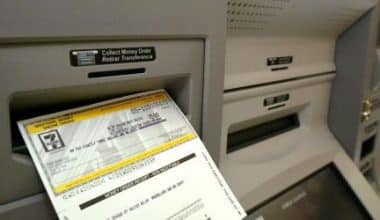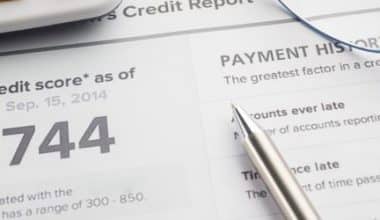Your business deposit accounts are an important part of your financial operations as a business owner. After all, it’s in your company business account that you keep your cash to fund expenses, wages, and running charges.
In this post, you’ll learn about the many types of business deposit accounts, what to look for when selecting one, and some of the finest high-yield business deposit account options.
Business Deposit Accounts
Let’s start with the basics before we look at the top business deposit accounts:
A business deposit account, like any other deposit account, is an account you open with a bank to keep extra money and, hopefully, increase the funds you store.
You’ll earn interest on your account balance and be able to make deposits and withdrawals as needed with a business deposit account. A business deposit account, unlike many personal savings accounts, will almost certainly require you to deposit a certain amount of money to start the account, maintain a certain balance, and set limits on the number of withdrawals and account activities you can perform.
As a result, you should generally only open a business savings account if you’re sure your firm has enough money in its business checking account to pay monthly expenses and other operating charges throughout the year.
How Does Business Deposite Work?
Business checking accounts are more commonly utilized for day-to-day transactions such as purchases and bill payments. These accounts allow for deposits and withdrawals, as well as the use of cheques and debit cards. ACH, wire transfers, cash, and other electronic fund transfers can all be used to make deposits (EFT)
Your bank or service provider delivers direct deposits to the ACH network, which routes them to the accounts of your workers. Your employees’ accounts are then credited by the receiving banks. (wccannabis.co) Once payment is received, funds are immediately available to your staff. ACH payments typically close within one to two business days.
Do Banks Keep Track of Cash Deposits?
Banks are required to track cash deposits of $10,000 or more into deposit accounts within 15 days after receiving them. The IRS compels banks to do this in order to avoid criminal conduct, such as money laundering, and to prevent funds from being used to support activities like terrorism and drug trafficking.
Requirements to Open a Business Deposit Account
While almost anyone may start a personal savings account with just an ID and a Social Security number, the criteria for business deposit accounts can be more stringent. You may be required to supply the following papers in order to open a business deposit account:
- Social Security number if you are a sole proprietor or Employee Identification Number (EIN) if your business is a corporation, partnership or limited liability company (LLC)
- Government-issued ID, such as a driver’s license or passport
- Business license and Articles of Organization (for LLCs) or Articles of Incorporation (for corporations)
- Organizing documents filed with the state
- Partnership agreement with the name of the business and its partners (for a business with multiple owners)
When opening a deposit business account, keep the following in mind:
- Discount rate: The percentage charged for every transaction processed
- Transaction fees: The amount charged for every credit card transaction
- Address Verification Service (AVS) fees
- ACH daily batch fees: Fees charged when you settle credit card transactions for that day
- Monthly minimum fees: Fees charged if your business doesn’t meet the minimum required transactions
Why Get a Business Deposit Account?
A business deposit account can be beneficial to any business owner for a variety of reasons.
- Protection. By keeping your business and personal funds separate, commercial banking provides minimal personal liability protection. Purchase protection is also provided by merchant services, which ensures that your customers’ personal information is kept safe.
- Professionalism. Customers will be able to pay you with credit cards or checks made payable to your company rather than directly to you. You’ll also be able to delegate day-to-day banking chores to staff on behalf of the company.
- Preparedness. A line of credit for the corporation is frequently included in business banking. This can be used in an emergency or if your company requires new equipment.
- The ability to buy things. Credit card accounts can assist your firm in making substantial initial purchases and establishing a credit history.
Types of business deposit accounts
Here are the various types of business deposit accounts for businesses.
Fixed rate/term bonds
Fixed for the set term, If you need to get your funds before the term ends, you may face a penalty and/or account closure if you have access.
Notice accounts
Variable – has the ability to be altered at any time. It all starts with a seven-day notice.
Easy access
Variable – has the ability to be altered at any time. There is no need to give notice, however the number of withdrawals may be limited.
Best Business Deposit Accounts
High-yield accounts are the greatest business deposit accounts since they allow you to earn more money over time.
So, we’ve selected the best business deposit accounts for you and listed them below.
| Prime Alliance Bank | Best for Low Minimum Balance |
| Tab Bank | Best Money Market Account |
| Capital One | Good Balance Between Traditional and Online-Only Banks |
| First Internet Bank | Highest Ongoing APY |
| Axos Bank | Best Fee Structure |
| Live Oak Bank | Limited Fees for Active Accounts |
#1. Prime Alliance Bank
High-interest business savings accounts are available in three tiers at Prime Alliance Bank. You can earn 0.25 per cent interest and 0.25 per cent APY for at least $1 (and up to 1 penny short of $100,000). You can earn 0.45 per cent interest and 0.45 per cent annual percentage yield if you have $100,000 to nearly $200,000 in your savings account. Savings accounts with a balance of $200,000 or more earn the highest APY of 0.60 per cent.
There is no minimum balance requirement to keep your savings account open, but you must have $1 to earn interest. If you can’t keep a significant balance, Prime Alliance could be a good option for a business savings account.
Your savings account has no monthly fee and you can make an unlimited number of deposits each month. You can, however, withdraw or transfer funds up to six times every month.
#2. Tab Bank
Tab Bank allows company owners to select between a standard savings account and a money market account for their funds. The current rates for business savings accounts and money market accounts are both 0.25 per cent. Money market funds, on the other hand, are invested, thus they have a bigger yield potential than a business savings account.
The monies in the money market account are more accessible, but the savings account at Tab Bank does not contain an ATM card or checks.
With a $25 deposit, you can open a money market account or a high-yield business savings account, but you must maintain a $1 balance.
#3. Capital One
Capital One, which is most known for its credit cards, has terrific high-yield business savings account for people who desire the convenience of working with a traditional bank but the APY of online-only competition.
The 0.20 per cent promotional APY is competitive with many online-only banks, but after 12 months, it lowers to the regular rate. This figure is still higher than most traditional banks, and it does not demand a minimum balance.
Capital One only asks for a $250 minimum deposit to get started, and if you have a balance of $300 or more, their modest $3 monthly fee is removed.
Your Capital One checking account can be linked for rapid transactions and smooth access to your funds.
#4. First Internet Bank
First Internet Bank is an online-only bank that offers a standard savings account, but its money market account (MMA) pays out higher interest than any other option.
Money market accounts are linked to current market rates, as the name implies. This means they aren’t set in stone, but rather ebb and flow with the economy.
If you have a balance of $1,000 or more, the $5 maintenance charge will be eliminated, but transaction and deposit fees will still apply.
Due to the fact that debit cards are only granted to sole proprietors, your access to funds may be limited. Even if you get a card, you’ll still be responsible for ATM fees.
First Internet Bank is a fantastic choice for:
- Owners who prioritize APY
- Those who don’t require ease of access and face-to-face customer service
- Sole proprietorships
#5. Axos Bank
Axos Bank, another online-only company, strives to bring business savings into the current era.
The accounts pay 0.50 per cent APY, which is on par with comparable online-only options but significantly higher than what you’d get from a traditional bank.
Axos provides you with a free debit card (although no specialized ATMs are available) as well as free online and mobile banking.
Axos Bank has the most competitive fee structures. You won’t have to worry about monthly maintenance costs if your average balance is over $2,500.
Axos Bank is a great option for:
- Owners who don’t want to pay fees
- Smaller businesses that will carry lower balances
- Those who don’t prioritize access and face-to-face customer service
#6. Live Oak Bank
Live Oak Bank has an attractive cost structure and a high 0.60 percent APY.
The APY isn’t the best on the market, but it’s still better than most other options, including online-only banks.
Unless your account becomes dormant, you make more than 6 transactions, or your balance falls to zero, you won’t be charged any monthly maintenance costs. Fees for wire transfers and stop payments are charged.
Live Oak Bank is a fantastic choice for:
- Business owners who make a few transactions per month
- Those who prioritize APY over access
- Those that do not intend to use wire transfers or stop-payment services in the near future
How Much Cash Deposit is Suspicious?
The Bank Secrecy Act introduced the Rule, which states that any individual or business receiving more than $10,000 in a single or several cash transactions is required by law to report this to the Internal Revenue Service (IRS).
Can a Bank Inquire as to Where You Obtained Your Funds?
If a bank has no cause to believe that a deposit is questionable, it is rare that the bank will inquire as to where the funds came from. In principle, banks are not required to inquire about the origin of their customers’ deposits unless there is grounds to suspect that the funds are tied to unlawful activities.
What is the Safets Way to Deposite Cash?
It is safer to deposit money at a bank drive-thru rather than an ATM. If a person wishes to deposit money into a checking account, whether it is his own or another person’s, utilizing a bank teller, ATM, or the mail can give documentation that the deposit was done.
Which Banks Do Not Accept Cash Deposits?
Some banks will not allow you to deposit funds into another person’s checking account. Among them are the three largest banks: JPMorgan Chase, Bank of America, and Wells Fargo. According to the banks, the decision to restrict cash aids in the prevention of money laundering and fraud — after all, cash is difficult to track.
Conclusion
Now that we’ve gone over our list of the top business deposit accounts, it’s up to you to make your decision.
After all, you’re the only one who knows your business well enough to decide which deposit account will best suit your needs.
However, any of these high-yield business deposit accounts could be a good choice for your company, as they all offer a competitive APY and convenient access, among other features.
With these alternatives in mind, you’ll have all the information you need to find a business deposit account and make the best decision for your firm.
After all, opening a business savings account, regardless of your decision, is an exciting step—one that signals that your company is expanding and that you’re ready to invest in your future.
Also learn
- Open a Free Business Checking Account Online With No Deposit, Updated!!!
- NSF Fee: Overview, Examples & 5 Tips to Avoid them
- What is a Cashier’s Check? Where & How to Get One
FAQs BUSINESS DEPOSIT ACCOUNTS
What Is a Reservable Deposit?
Any bank deposit that is subject to reserve requirements established by the Federal Reserve Bank of the United States is referred to as a reservable deposit. Through the mechanism of fractional reserve banking, such a deposit could be used in part as a loan. The bank must keep the other half, which is defined by the Fed’s reserve requirements, and make it accessible for prompt withdrawal upon request.
What is needed to open a business deposit account?
Here are requirements for business deposit accounts:
- Social security number or employer identification number (EIN)
- Personal identification, such as a passport or driver’s license.
- Business license with the name of the business and the owner’s name(s)
- Certificate of assumed name/DBA.
Is it illegal to pay personal expenses from business account?
They act of using business funds for personal purposes is against business rules by the Internal Revenue Service and investors, as they both prefer to see a separation of business and personal accounts. So its advisable you treat your business account as a separate entity from your bank account.
How can I spend money from my business account?
Here are ways you can spend money from your business account
- Salary
- Dividend payments
- Director’s loan
- Reimbursement of expenses
{
“@context”: “https://schema.org”,
“@type”: “FAQPage”,
“mainEntity”: [
{
“@type”: “Question”,
“name”: “
What Is a Reservable Deposit?”,
“acceptedAnswer”: {
“@type”: “Answer”,
“text”: “
Any bank deposit that is subject to reserve requirements established by the Federal Reserve Bank of the United States is referred to as a reservable deposit. Through the mechanism of fractional reserve banking, such a deposit could be used in part as a loan. The bank must keep the other half, which is defined by the Fed’s reserve requirements, and make it accessible for prompt withdrawal upon request.
“
}
}
, {
“@type”: “Question”,
“name”: “What is needed to open a business deposit account?”,
“acceptedAnswer”: {
“@type”: “Answer”,
“text”: “
Here are requirements for business deposit accounts:
- Social security number or employer identification number (EIN)
- Personal identification, such as a passport or driver’s license.
- Business license with the name of the business and the owner’s name(s)
- Certificate of assumed name/DBA.
“
}
}
, {
“@type”: “Question”,
“name”: “Is it illegal to pay personal expenses from business account?”,
“acceptedAnswer”: {
“@type”: “Answer”,
“text”: “
They act of using business funds for personal purposes is against business rules by the Internal Revenue Service and investors, as they both prefer to see a separation of business and personal accounts. So its advisable you treat your business account as a separate entity from your bank account.
“
}
}
, {
“@type”: “Question”,
“name”: “How can I spend money from my business account?”,
“acceptedAnswer”: {
“@type”: “Answer”,
“text”: “
Here are ways you can spend money from your business account
- Salary
- Dividend payments
- Director’s loan
- Reimbursement of expenses
“
}
}
]
}
- Strategic Alliance: Types & Examples in 2023
- Industrial Insurance: Definition and Detailed Explanation
- World Bank Grants: All You Need To Know
- Invest Money: The Best Way To Invest Money 2023
- Best Online Business Checking Account In 2023(+ No Credit Options)





